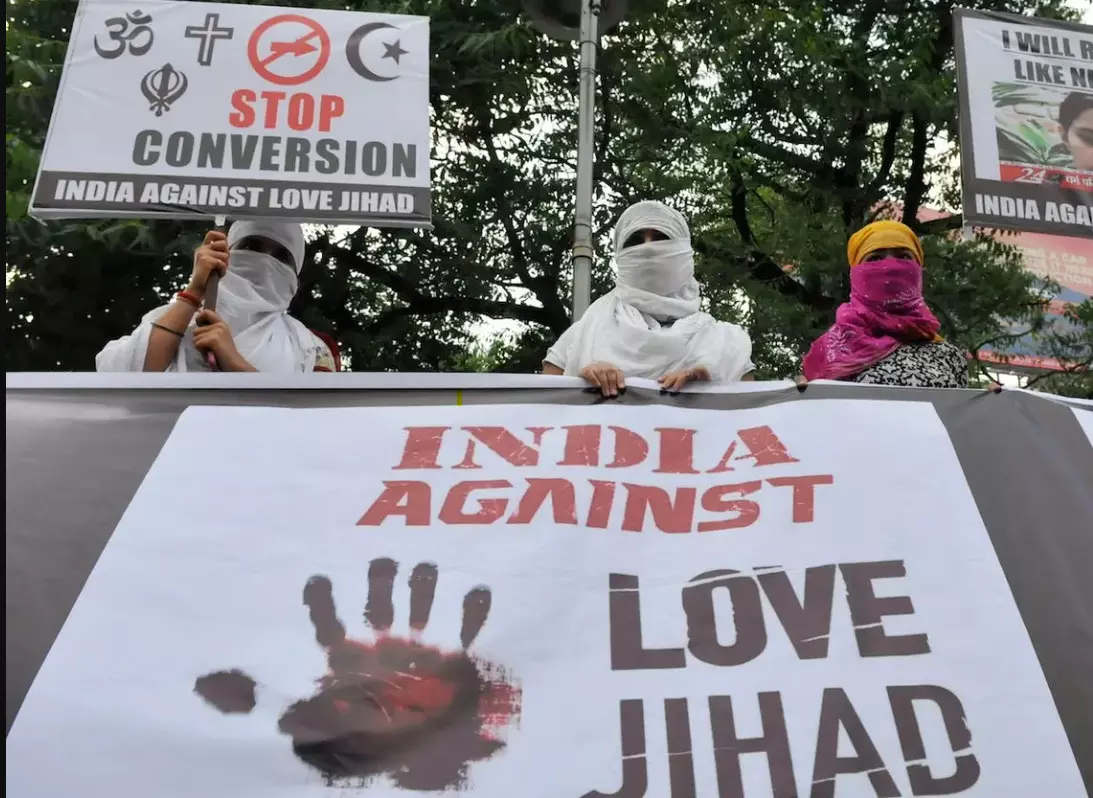Playing with fire?

Communal tensions in Porula town of Uttarakhand are flaring up alarmingly. The entire Muslim community is allegedly being targeted in the name of combating ‘love jihad’ — a self-contradictory, ironical term with which a significant proportion of the nation's populace seems obsessed currently. While love is one of the most tender and beautiful feelings that unite people, jihad, though erroneously, has been linked to a divisive and terrorising connotation lately. Reports reveal that Muslim families are being forced to leave the town in large numbers. Protest by right-wingers is on the rise. Certain groups are reportedly demanding to “rid the place of Muslims”. The obvious question that props up here is what the state has been doing to arrest the rise of communal subjugation of a particular community. Apparently, it is doing nothing in this direction. All its efforts have been instead made in the opposite direction, providing legitimacy to the anti-love jihad protests. The BJP government in the state is totally aware about the ongoing protests carried out by right-wing Hindutva groups. In fact, the CM speaks in the same tone, saying that “love and land jihad” cases can’t be tolerated. As per him, “people have become aware and are themselves coming forward. People are coming out against these kinds of crimes and against those promoting love jihad as part of a conspiracy.” This statement suits Dhami as a politician affiliated with the BJP — a party that vociferously backs the tirade against so-called love jihad. However, it doesn’t suit him as a chief minister who must abide by the Constitutional spirit and maintain law and order in the state he rules. Furthermore, there have been attempts to paint the protests as a popular response, and link it with the state's hill identity. Giving a free hand to communal groups to rip apart the Constitutional principle of secularism and throw law and order situation asunder — however convinced the CM may be regarding the fairness of the intent of hooligans — reflects the abject failure of the government, bordering on complicity in crime. The violation of the rule of law cannot be endorsed by topmost state functionaries, either covertly or overtly. Furthermore, the inaction of the state government not just raises questions about its intent, but also casts a dark shadow on its ability to deal with powerful communal groups. It gives an impression of the state buckling under the pressure of communal forces, which is derogatory to India’s stature as a secular nation. It also needs to be noted that in a democracy, political parties rule a state or country for a certain period of time on the basis of their ideology. But when ideology takes precedence over the governance system, the status of the state or country starts transitioning from democracy to anarchy. The failure of the state government to take deterring actions against communally driven groups may imply two things — either the communal forces have grown very strong or the state machinery has weakened to a point of crumbling under the ruling party’s own political compulsions. None of the two augurs well for a functioning democracy like India. Politics of radicalism entails cashing upon burning (often socio-politically counterproductive) issues as the elections arrive. Last year, just ahead of the Uttarakhand assembly elections, the state BJP had come up with the issue of Uniform Civil Code. This time around, the open support to anti-love jihad protests led by Hindutva groups is being seen by many as an attempt to keep the Lok Sabha seats of the state intact within the fold of the BJP. However, such political transactions come at a heavy socio-political cost. All parties must abstain from using such strategies for petty political gains. The political overtones behind the harnessing of the love jihad issue by the BJP are also visible in its conscious criticism of parties opposing the communal tirade. In an apparent bid to ignite polarisation, the BJP accused the Congress of playing “appeasement” politics while also challenging it to disclose its stand. The politics of polarisation has a limited shelf life in a country like India whose brilliant sons have built an enormous, awe-inspiring shield of Constitution which, despite onslaughts, is relentlessly serving its purpose of protecting democracy. Those pursuing politics of hate should be aware of the legacy they’ll leave behind.



